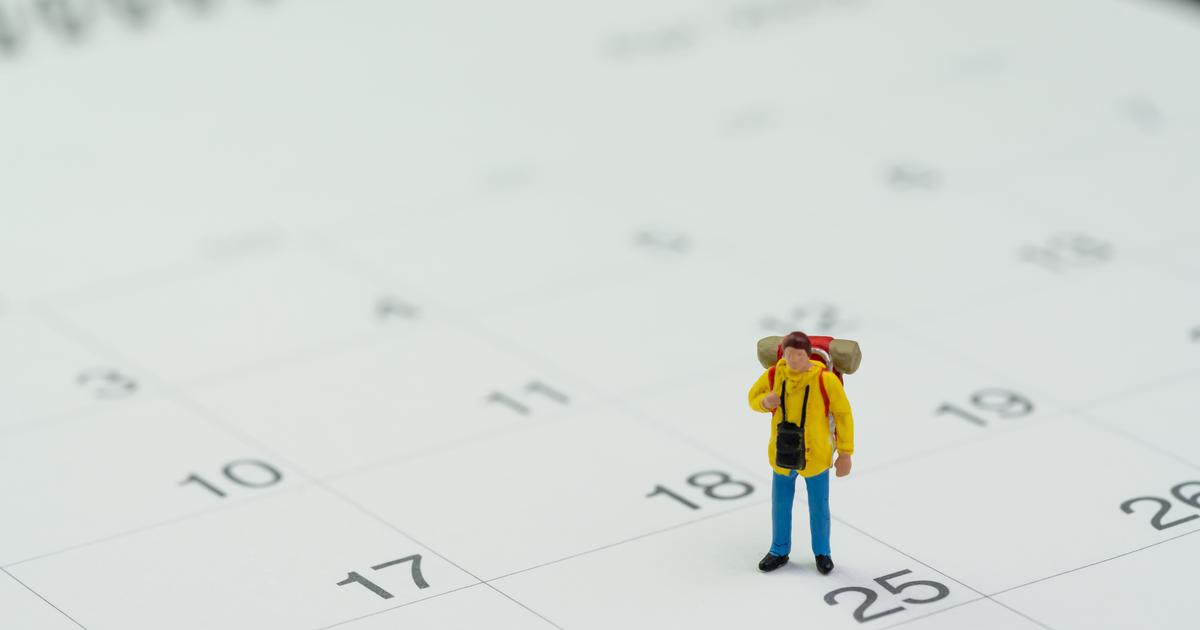Icon: enlarge
Photo: Jennifer Brister / Stocksy United
It's a Monday in February.
I'm sitting in the garden with a brand new notebook on my knees, the blank pages of which are glaring in the sun.
I take a pen and write:
does
.
A second look critically and paint in beautiful script
does
.
And a third right afterwards, in steep, good children's letters:
does does does a car
What a sentence.
Without periods and commas, a sentence that is hard to beat in terms of stupidity and yet something like a big bang, the beginning of my acquaintance with the written word.
"Tür und Tor" is the name of the reading primer from which it comes.
A textbook for the first grade from the 1970s, with awkward, angular illustrations and protagonists with names like Grete or Jochen.
And call her cat pussy.
Did they think we were stupid children?
In the primer there are questions that, in retrospect, raise doubts as to how people of my generation ever made it to graduation.
“Is Grete driving in the car?
Is there a car in the car? ”What is this distant, mechanical language?
Why not: "Is the rose blue?" Or "Does Grete like honey?" Why not smell, taste, and feel words?
Did they think we were stupid children?
Or were we just unlucky and ended up in a school of the yesterday in the beginning, mid-seventies, in the middle of a socially whipped-up climate between RAF excesses, the fatal hostage-taking at the Olympic Games in Munich and government crises surrounding Willy Brandt?
And why the hell did this pointless
tut
phrase flow onto paper?
Make a ship in your head
I tried again.
To write the famous morning pages, a kind of diary, three sheets of paper immediately after getting up, without thinking, in free flow, associative, stream-of-consciousness-like.
I wanted to use the time gained by working from home for myself, to clear things up in my head.
Alone - nothing flowed.
It was way too warm for February (climate crisis) and I felt old and uninspired (midlife crisis).
My husband wanted to have breakfast with me and talk (attention deficit crisis), my daughter scolded her teachers (high school diploma crisis), my son finally wanted to see his friends again (corona crisis).
What else should come of this but
does does does a car
?
The diary idea came from Julia Cameron, a US author who had considerable success with her book "The Artist's Way" in the early 1990s.
Even back then I hated guidebooks and bestsellers, but an actor friend of mine was so enthusiastic and I was so completely confused about life that he practically forced me to read the book.
I found it very stimulating, even if therapeutic writing is by no means an invention of the author, but a method that is quite common in psychotherapy.
Creativity instead of drugs and paranoia
Cameron, now almost 73 years old, has led an interesting life.
She wrote for the Washington Post and Rolling Stone.
In the 1970s she was briefly married to director Martin Scorsese and had a daughter by him - before he left her, for Liza Minelli.
For a while, Cameron was addicted to alcohol and drugs.
She suffered from psychosis and paranoia until she renounced the intoxication in 1978 and realized that only a lived creativity can bring fulfillment.
Sounds hippie-esque, but in her case it is a very specific concern.
more on the subject
Age!
- The midlife column: Don't smoke weed, no sex - and always fold in the exterior mirrors by Juno Vai
Age!
- The Midlife Column: Same Faces, Same Noses - Is That It? By Juno Vai
Age!
- The Midlife Column: Total Crush With 53By Juno Vai
In 2016, Cameron presented a work tailored to older readers: "It's never too late to start over".
The book is advice literature in its purest form - but well structured, clearly formulated and therefore easy to implement.
For twelve weeks, the book guides readers through a self-exploration program, of which the morning pages are only a part.
There are targets and lists to check off, appointments with yourself, and every week you review a piece of life.
Cameron encourages you to set out on new shores, to make forgotten dreams come true.
She tells of a 60-year-old who is starting to play the piano.
From a 65-year-old who starts studying film and thrives through creative engagement with young fellow students.
“I feel useful and optimistic.
I have stories to tell and the time to tell them, «he says.
"The censor is a complete idiot"
To get creative, Cameron advises silencing the so-called inner censor.
This is the skeptic, the cynic, the evil spirit who plants the "I can't - I mustn't - doesn't make sense" mantra in our heads and nips every creative activity in the bud.
Too late, not good enough - he's the incarnation of self-doubt and negativity.
Cameron asks her readers to give him a name, to talk to him, to put him in his place.
"Do not be discouraged.
The censor is a complete idiot. "
Age!
- The midlife column, arrow to the right
When you are young, you experience a lot for the first time: the first kiss, the first trip without parents.
When you hit the 50 mark, a lot of new things also happen: the first hot flashes, the first artificial joint.
And you suddenly see some things differently.
Why not everything was better in the past? Our four columnists take turns talking here.
All columns can be found here.
So I let crises be crises and sat down at the desk the next day after waking up.
Lo and behold, I get far beyond reading primer phrases.
I'm really excited and jittery, suddenly I have a thousand ideas.
But there are also unpleasant memories, missed opportunities, blurred, repressed things.
Working with the book is an adventurous journey on which you should be nice to yourself: "A little active kindness to ourselves can get us very far," says Cameron.
So I go ahead and discover amazing things.
Total authenticity
Just the daily writing, the hand that holds the pen and fills the paper, the rinsing, remembering, formulating are a unique process that has something liberating and stimulating.
At best, it can lead to me getting to know myself better, understanding what I really want, and using this knowledge to do things that are good for me.
This has very specific consequences: For example, I no longer meet with friends to whom I feel somehow obliged, but in whose presence I actually feel totally uncomfortable.
Ultimately, it's about truthfulness.
Or, to use the words of the recently deceased US journalist and midlife bestselling author Gail Sheehy ("In the Middle of Life. Coping with Foreseeable Crises")
to formulate: "At some point around mid-life we can really grow up, whereupon we either shrink back into ourselves, or we grow beyond ourselves and blossom into full authenticity."
Icon: The mirror


/cloudfront-eu-central-1.images.arcpublishing.com/prisa/V4HEAF2OUFDLVD3M2FFFG6OI44.jpg)
/cloudfront-eu-central-1.images.arcpublishing.com/prisa/SA262KRCZ5BVRO4P7SUSVQPR7Q.jpg)
/cloudfront-eu-central-1.images.arcpublishing.com/prisa/JOUHOYP5TZF3RFHSGHG2XJTTLY.jpg)










